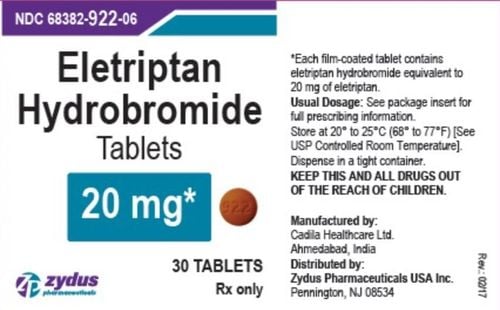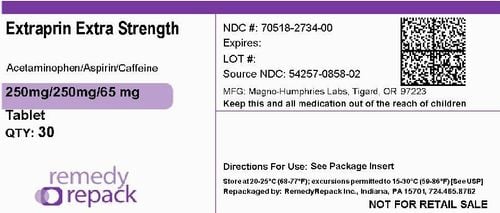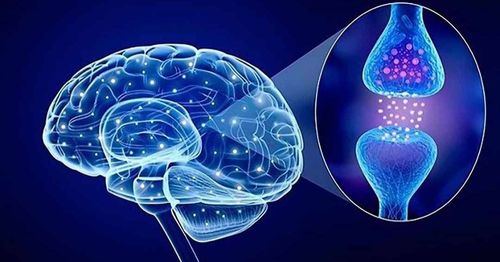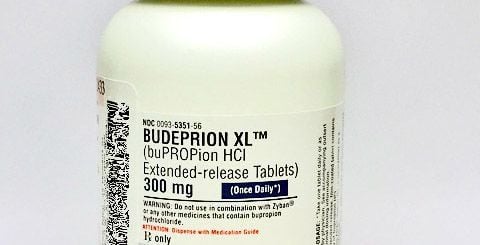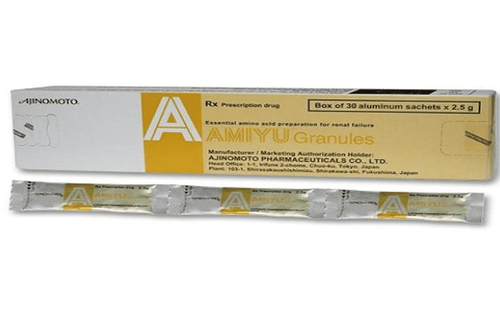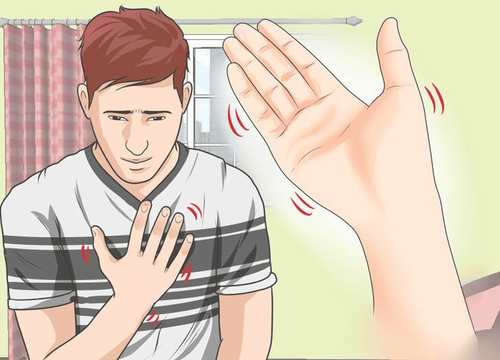This is an automatically translated article.
5-HTP is extracted from the seeds of an African shrub called Griffonia simplicifolia. 5-HTP can be converted to serotonin, a chemical messenger between nerve cells. 5-HTP is not found in foods and can only be added through supplements.
1. What is 5-HTP?
5 htp is what drug? 5-Hydroxytryptophan (5-HTP) is not a drug, it is an amino acid that is produced naturally in the body. 5-HTP can be converted to serotonin, a chemical messenger that sends signals between nerve cells. Low serotonin levels can be linked to conditions including depression, anxiety, weight gain, sleep disturbances, and other health problems. As a result, increasing serotonin production can provide a variety of benefits. Synthetic 5-HTP is a product from the seeds of an African plant called Griffonia simplicifolia. 5-HTP works by enhancing serotonin production. Serotonin can affect sleep, appetite, temperature, sexual behavior, and pain sensation. For this reason, 5-HTP supplements are becoming increasingly popular.
2. Uses of 5-HTP
Here are 5 potential health benefits of 5-HTP based on science.
2.1 5-HTP may help support weight loss 5-HTP increases satiety, making you eat less and lose weight. When you try to lose weight can increase the production of hormones that make you feel hungry. This constant feeling of hunger can make weight loss unsustainable in the long run. 5-HTP can counteract these hunger hormones, working to suppress appetite and help you lose weight.
In one study, 20 people with diabetes were randomly assigned to receive 5-HTP or a placebo for two weeks. Results showed that those taking 5-HTP consumed about 435 fewer calories per day, compared with the placebo group. Furthermore, 5-HTP primarily inhibits the absorption of calories from carbohydrates, which is associated with better blood sugar control. Many other studies have also found that 5-HTP increases feelings of fullness and aids weight loss in overweight and obese individuals. Furthermore, animal studies have shown that 5-HTP can reduce food intake caused by stress or depression.
2.2 Helps fight depression by increasing Serotonin levels The effects of 5-HTP in reducing symptoms of depression have been studied quite a bit. The exact cause of depression is currently unknown, but some researchers believe that an imbalance in serotonin can affect your mood and lead to depression. Supplemental 5-HTP is believed to help treat depression by increasing serotonin levels.
In fact, several small studies have found that 5-HTP reduces symptoms of depression. However, the two of them did not use placebo for comparison, thus limiting the reliability of those studies. Similarly, another study concluded that 5-HTP may help treat depression. However, many studies show that the potential antidepressant effects of 5-HTP are stronger when combined with other substances or antidepressants than when they are used alone. In addition, multiple reviews suggest that more high-quality, additional research is needed before 5-HTP can be recommended as a treatment for depression.
2.3. Improve Symptoms of Fibromyalgia Supplementing with 5-HTP may improve symptoms of fibromyalgia, a condition characterized by muscle and bone pain. The pathogenesis of fibromyalgia is currently unknown, but low serotonin levels may be associated with the condition. This has led researchers to believe that increasing serotonin levels through 5-HTP supplementation may benefit people with fibromyalgia. Indeed, early evidence suggests that 5-HTP can improve symptoms of fibromyalgia, including muscle pain, sleep problems, anxiety, and fatigue. However, there is currently not enough research to draw any definite conclusions about the effectiveness of 5-HTP in improving fibromyalgia symptoms.
2.4. May Help Reduce Migraine Frequency 5-HTP is said to help relieve migraines, which are headaches that are often accompanied by nausea or vision disturbances. While the exact cause of migraines is debated, some researchers believe they are triggered by low serotonin levels. A study of 124 people compared the effectiveness of 5-HTP and methysergide, a popular migraine medication, in preventing migraine symptoms. Results showed that daily 5-HTP supplementation for six months prevented or significantly reduced the number of migraine attacks in 71% of the participants. In another study in 48 students, 5-HTP reduced headache frequency by 70%, compared with an 11% reduction in the placebo group. Similarly, many other studies have found that 5-HTP may be an effective treatment option for people with migraines.
2.5. May promote sleep by increasing the production of Melatonin 5-HTP produces serotonin, which can be converted into the hormone melatonin. Melatonin plays an important role in the regulation of sleep. Its levels start to rise in the evening to promote sleep and decrease in the morning to help you wake up. Therefore, 5-HTP supplementation may enhance sleep by promoting melatonin production in the body. One study found that a combination of 5-HTP and gamma-aminobutyric acid (GABA) significantly reduced the time it took to fall asleep, increased sleep time, and improved sleep quality. GABA is a chemical transmitter that can help promote relaxation. Combining it with 5-HTP may have a synergistic effect. In fact, several animal and insect studies show that 5-HTP improves sleep quality and the effect is greater when combined with GABA.
3. Undesirable effects of 5-HTP
When taken orally, it is probably safe to take 5-HTP in doses up to 400 mg daily for up to one year. The most common side effects include heartburn, upset stomach, nausea, vomiting, diarrhea, drowsiness, sexual problems, and muscle problems. Large doses of 5-HTP, such as 6-10 grams per day may not be safe. These doses have been linked to serious stomach problems and muscle spasms. Some people who have taken 5-HTP have developed a serious health condition known as eosinophilic myalgia syndrome (EMS). Some have suggested that EMS may be caused by an incidental contaminant found in some 5-HTP products. But there isn't enough scientific evidence to know if EMS is caused by 5-HTP, an impurity, or some other factor. Until more is known, 5-HTP should be used with caution. Using certain medications can increase serotonin production. Combining these drugs with 5-HTP can cause dangerous levels of serotonin in your body. This is called serotonin syndrome, a condition that can be life-threatening. Since 5-HTP can also promote sleep, you should take it with a prescription sedative, such as Klonopin, Ativan, or Ambien that can cause too much sleepiness. Due to the potential for negative interactions with other medications, consult your doctor or pharmacist before taking 5-HTP.4 supplements.
4. 5-HTP . Dosage Instructions
The recommended dose for 5-HTP depends on the individual case. Here are some general guidelines to get you started with 5-HTP:
Weight management: 250–300 mg, 30 minutes before meals Mood booster: 50–100 mg, 3 times daily with meals . Use for at least a week to see the effect of Symptom Relief in Fibromyalgia: 100 mg, taken 3–4 times daily with meals. Use for at least two weeks to see the effect of Migraine medication: take 100–200 mg, 2-3 times daily with meals. Take the drug for two to three weeks to see the effects of the Sleep aid: take 100–300 mg about 30–45 minutes before bedtime. Works with GABA to increase the effectiveness of 5-HTP.
5. Precautions when using 5-HTP
Pregnancy and breast-feeding: There isn't enough reliable information to know if 5-HTP is safe to use during pregnancy or breast-feeding, so it should be avoided. Children: It is probably safe for children when 5-HTP is taken by mouth in appropriate doses. In children younger than 12 years, 5-HTP appears to be safe in doses up to 5 mg/kg daily for up to 3 years. Surgery: 5-HTP can affect a chemical in the brain called serotonin. Certain medications used during surgery can also affect serotonin. Patient use of 5-HTP before surgery may cause excessive levels of serotonin in the brain and can lead to serious side effects including heart problems, tremors, and anxiety. Patients should stop taking 5-HTP at least 2 weeks before surgery.
6. Drug interactions to be aware of
6.1. Carbidopa (Lodosyn) interacts with 5-HTP 5-HTP may affect the brain. Carbidopa can also affect the brain. Taking 5-HTP along with carbidopa may increase your risk of serious side effects including: rapid speech, anxiety, aggression.
6.2. Sedatives interact with 5-HTP 5-HTP can cause drowsiness and slow breathing. Certain medications, called tranquilizers, can also cause drowsiness and slow breathing. Taking 5-HTP with a sedative might cause breathing problems and/or excessive drowsiness.
6.3. Serotonergic drugs that interact with 5-HTP 5-HTP can increase a brain chemical called serotonin. Some drugs also have this effect. Taking 5-HTP together with these medicines might increase serotonin too much. This can cause serious side effects including heart problems, seizures, and vomiting.
In short, your body converts 5-HTP into serotonin, a substance that regulates appetite, pain, and sleep. Supplementing with 5-HTP is an effective way that will help increase your serotonin levels. Higher serotonin levels can have many benefits, such as promoting weight loss, improving symptoms of depression and fibromyalgia, reducing the frequency of migraine attacks, and helping you sleep better. There are some side effects associated with the use of 5-HTP, but they can be minimized by starting with a small dose and gradually increasing the dose according to the patient's response.
Follow Vinmec International General Hospital website to get more health, nutrition and beauty information to protect the health of yourself and your loved ones in your family.
Please dial HOTLINE for more information or register for an appointment HERE. Download MyVinmec app to make appointments faster and to manage your bookings easily.
References: webmd.com, healthline




